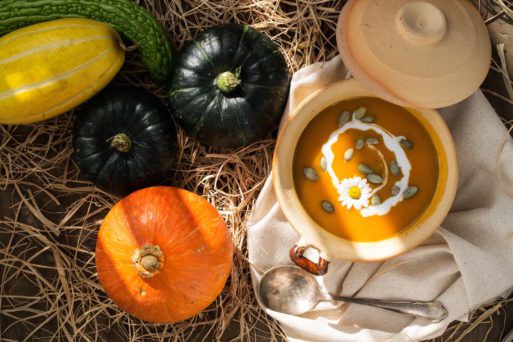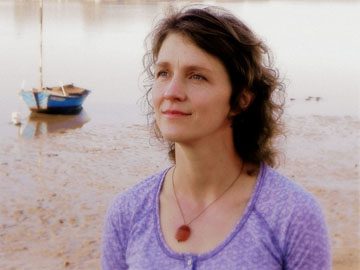
Many families will have empty seats at their tables this holiday season.
After it all, the events of the holidays,
the dinner tables passing like great ships,
everybody made soups for a while.
Cooked and cooked until the broth kept
the story of the onion, the weeping meat.
It was over, the year was spent, the new one
had yet to make its demands on us,
each day lay in the dark like a folded letter.
Then out of it all we made one final thing
out of the bounty that had not always filled us,
out of the ruined cathedral carcass of the turkey,
the limp celery chopped back into plenty,
the fish head, the spine. Out of the rejected,
the passed over, never the object of love.
It was as if all the pageantry had been for this:
the quiet after, the simmered light,
the soothing shapes our mouths made as we tasted.
In “Everybody Made Soups,” poet Lisa Coffman uses the bounty of communal holiday meals to unearth the challenging aspects of the previous year – “the story of the onion, the weeping meat;” “the ruined cathedral carcass;” and “the rejected, the passed over, never the object of love.” Yet even as she does so, she creates a sense of hope for the future — a place where each day lies “in the dark like a folded letter.”
As we near the end of a second pandemic year, Coffman’s poem rings especially true. Many families are preparing for holidays with fewer guests – due to death, illness or ongoing COVID-19 restrictions. After two years of global uncertainty, few people feel capable of predicting what the coming year will bring. Even Coffman’s choice of title – “Everybody Made Soups” – evokes the widespread desire for warmth, comfort and community after long months of isolation.

Poet Lisa Coffman
Credit: California State Polytechnic University
Coffman, who was raised in East Tennessee and now lives in California, has received fellowships and prizes for her poetry and teaches at California State Polytechnic University in San Luis Obispo. “Everybody Made Soups” appeared in “How to Love the World: Poems of Gratitude and Hope,” which is edited by James Crews and includes the work of such luminaries as Amanda Gormon and Naomi Shihab Nye.
Crews had begun the compilation before the pandemic when many turned to poetry for hope and consolation. “It’s very important to write about the difficult, the dark, and the broken aspects of our world because we have to survive it and then we have to find a way to process it,” he told NPR. “But we also need poems to remind us why the world is worth saving and also how we can take better care of ourselves.”
In that spirit, Coffman’s poem invites us to look beyond the pain of loss or the hope of plenty to what remains: “the quiet after, the simmered light / the soothing shapes our mouths made as we tasted.”

 “Everybody Made Soups,” by Lisa Coffman
“Everybody Made Soups,” by Lisa Coffman


 How Dare You Die Now!
How Dare You Die Now!
 Debating Medical Aid in Dying
Debating Medical Aid in Dying
 “Help Me, Helen”
“Help Me, Helen”














